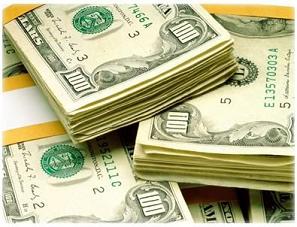“Mafianomics”: From “Trickle-down Economics” to outright Financial Fraud

Remember “Reaganomics”? Those were the policies described or derided as “trickle-down economics” which resulted in huge tax cuts for the very wealthy and increases in defense spending. These precepts, also led to the forerunner of the “sub prime” loan debacle known as the “Savings and Loans crisis”. Back then, the national debt grew from $700 billion to $3 trillion. Moreover, the U.S went from being the world’s biggest creditor to its largest borrower. Today the U.S is mired in debt.
Today’s version of “Reaganomics” is a much more cancerous form of grotesque greed. Let’s call this disease “Mafianomics”, or an economic policy designed to enrich the richest of the rich, while impoverishing the middle class and the rest of us not so “well connected” to the centers of power. Mafianomics reigns supreme over the planet. Just take a drive in the suburbs of a poor country’s city, like Istanbul, Mexico city, Cape Town, or even in rich ones like perhaps, a major North American one, and you will see tangible signs of it. Huge mansions on sprawling grounds, which are built like medieval castles with turrets (and surveillance cameras on top) surrounded with iron gates and fences and private security detail. These are the garish displays of money made under “Mafianomics”.
“Mafianomics” is a concept, which grew out of the ideological moorings of globalization and is coupled with the practical underpinnings of IMF-World bank’s “structural adjustment policies”. It can attribute its success to “crony capitalism” (1), which now dominates in both advanced and “emerging market ” economies worldwide.
It is the crudest and most criminal form of capitalism which ever existed in our modern and post –modern history. It is not based on making profit for the purpose of social advancement or spreading wealth “top down”, but instead it hinges on seeking pure profit, for the sake of personal gain only and regardless of the consequences and cost of this economic model on the society at large and its negative effects, in the long term. Making an honest living is anathema to this vile dogma.
It is all premised instead on enrichment exclusively by means of “ill gotten gains” such as drug-trafficking, money-laundering, government endorsed loans scams, “Ponzi schemes”, and PPPs (Public- Private Partnerships, which defraud governments and fleece taxpayers with collusion from officials “on the take”). Venality and criminality are Mafianomic’s most cherished values.
This system depends on fear and intimidation of the masses, by public and private security networks, enforced by criminal syndicates and “Wall-Street gangsters” ( i.e Goldman Sachs and company) in cahoots with “capo” politicians and regulatory officials. It is premised, on grand scale theft of the nation’s wealth (i.e. the treasury and taxpayers) at the expense of the nation’s economic well-being and financial stability. It’s blind brigandage of the public purse, not in the publics’ interest but strictly for the corporate, military and financial interest and a few clannish gangsters with silk suits and “Gucci” shoes. The corollary or “Mafianomics” results in the rise of drug cartels which rival OECD member state such as in Mexico in the west . Or in “bumper crops” of making heroine or growing poppies in other “narco states” such as Afghanistan. This form of degenerate capitalism, is premised on corruption, bribery, rigged public tenders and elections, monopolization – racketeering, extortion and fraud on a massive scale. If Mafianomics were sold and branded as tobacco or cigarettes the warning label would likely read : “This product is dangerous to the citizenry and democracy.”
(1) A system in which success in business depends on close relationships between businesspeople and government officials. It may be exhibited by favoritism in the distribution of legal permits, government grants, special tax breaks, and so forth. “Crony capitalism” is believed to arise when political cronyism spills over into the business world; self-serving friendships and family ties between businessmen and the government influence the economy and society to the extent that it corrupts public-serving economic and political ideals.

